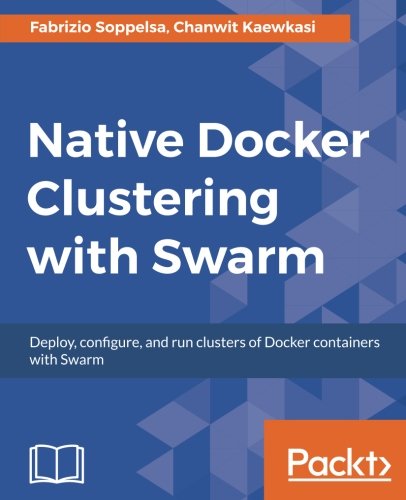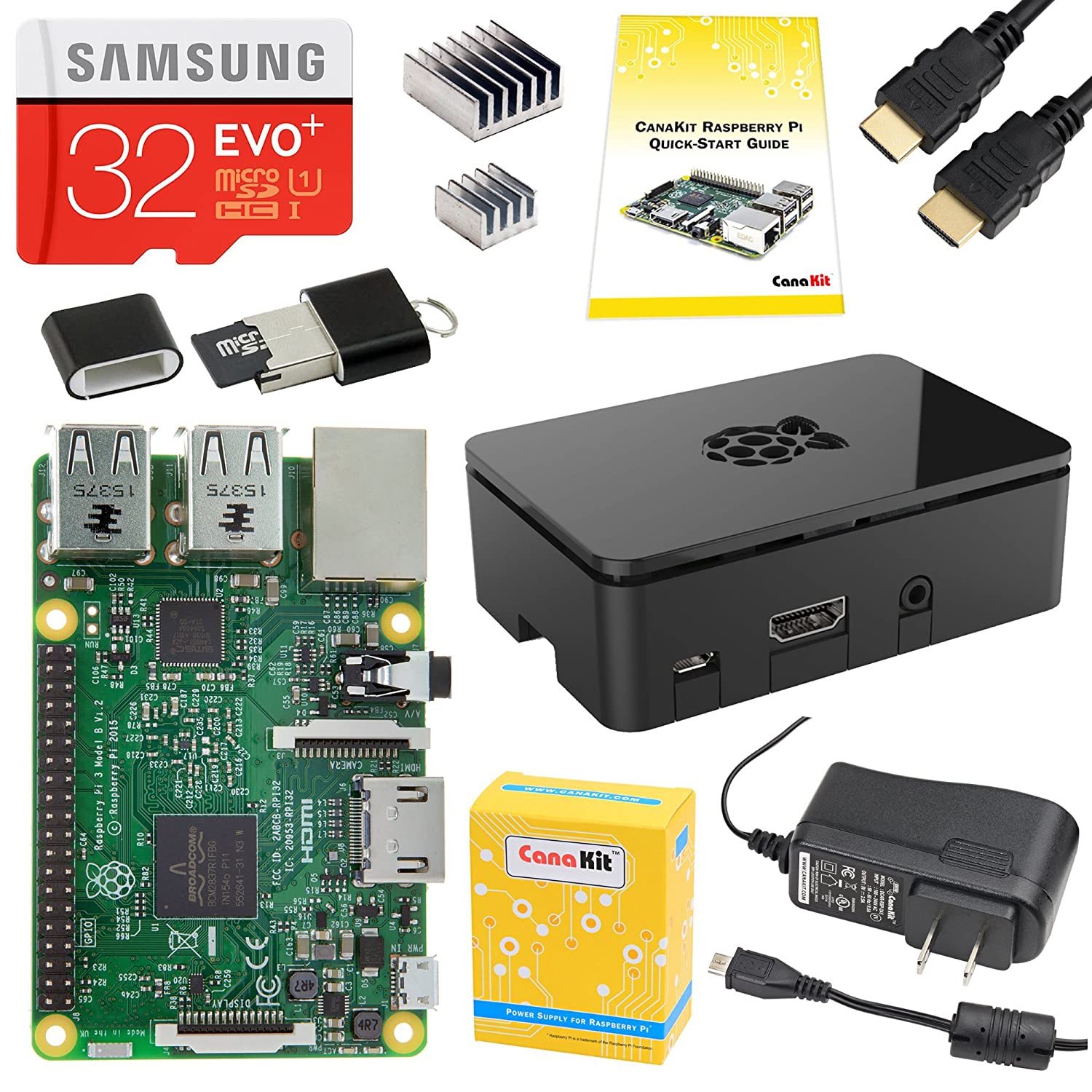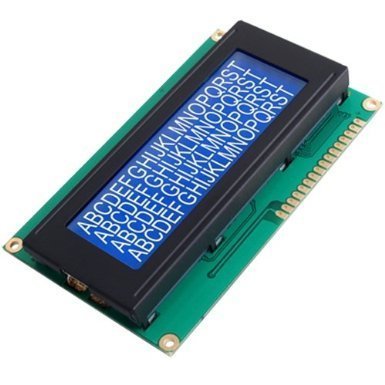; Date: Sun May 13 2018
Tags: China »»»» China Manufacturing »»»» Strange Parts »»»»
Almost everything is Made In China, with a whole gamut of ramifications. China is receiving all the economic wealth that used to flow to corporations with local manufacturing - every factory that relocates to China gives China more economic power. Shipping products from oversees adds to the environmental burden of those products, because of the dirty diesel fuel burned to transport products across the planet. It is difficult to wrap your head around the extent of the manufacturing in China, until you go there and see it for yourself. The next best thing is watching videos made by people who travel there in our place, to show us actual conditions.
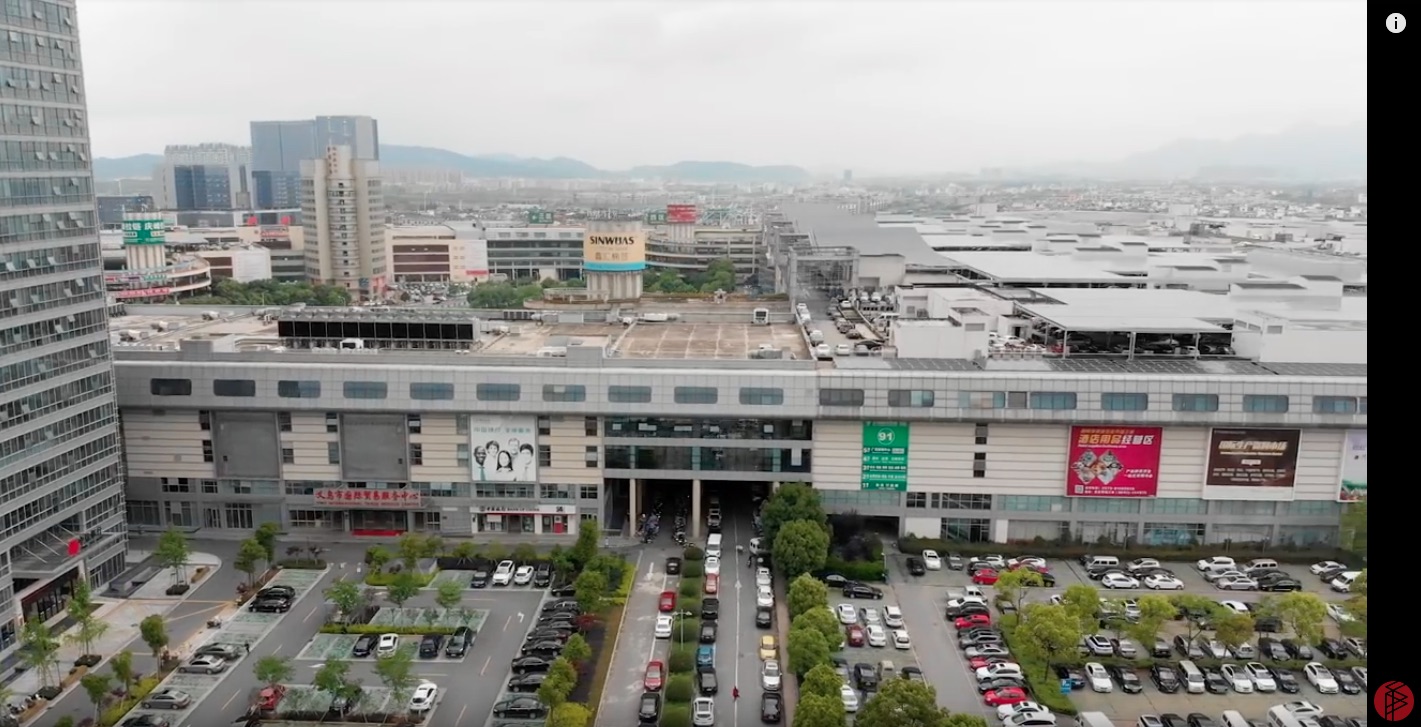
In this video, Scotty from Strange Parts travels to Yiwu Industrial Trade City - the largest wholesale market in the world. It is a cluster of buildings covering 5.5 million square meters of exhibit space, sprawling for 7 kilometers.
This is a wholesale market meaning that the vendors are not selling products to retail buyers. The building is like a shopping mall. Well, a Chinese shopping mall - which is wholly unlike Western shopping malls, a Chinese shopping mall feels more like an office building but with hundreds of independently owned shopw.
In this case every shop in Yiwu Industrial Trade City is an exhibit space for a manufacturer to display their wares. The visitors come from around the world to find products to sell through their own stores. They make deals for ordering a given quantity of merchandise, shipped to a given port, that the distributor then sends to their own stores to put on sale to retail customers.
The picture shown above is just one small segment of Yiwu Industrial Trade City. In the video below, the guys went through a couple "Districts" but only touched the surface of this place.
This video raises the question - how do product distributors and retailers find the products they sell? The traditional method is going to trade shows, to talk with distributors or maybe manufacturers. There are websites like AliBaba.com and its sister website AliExpress.com that list zillions of products in an online catalog of dizzying breadth and scope. But, folks can also go to Yiwu Industrial Trade City to browse available products manufactured in China.
NOTE All pictures in this post are copied from a video by Scotty of the Strange Parts channel on YouTube. Therefore, every picture is his.
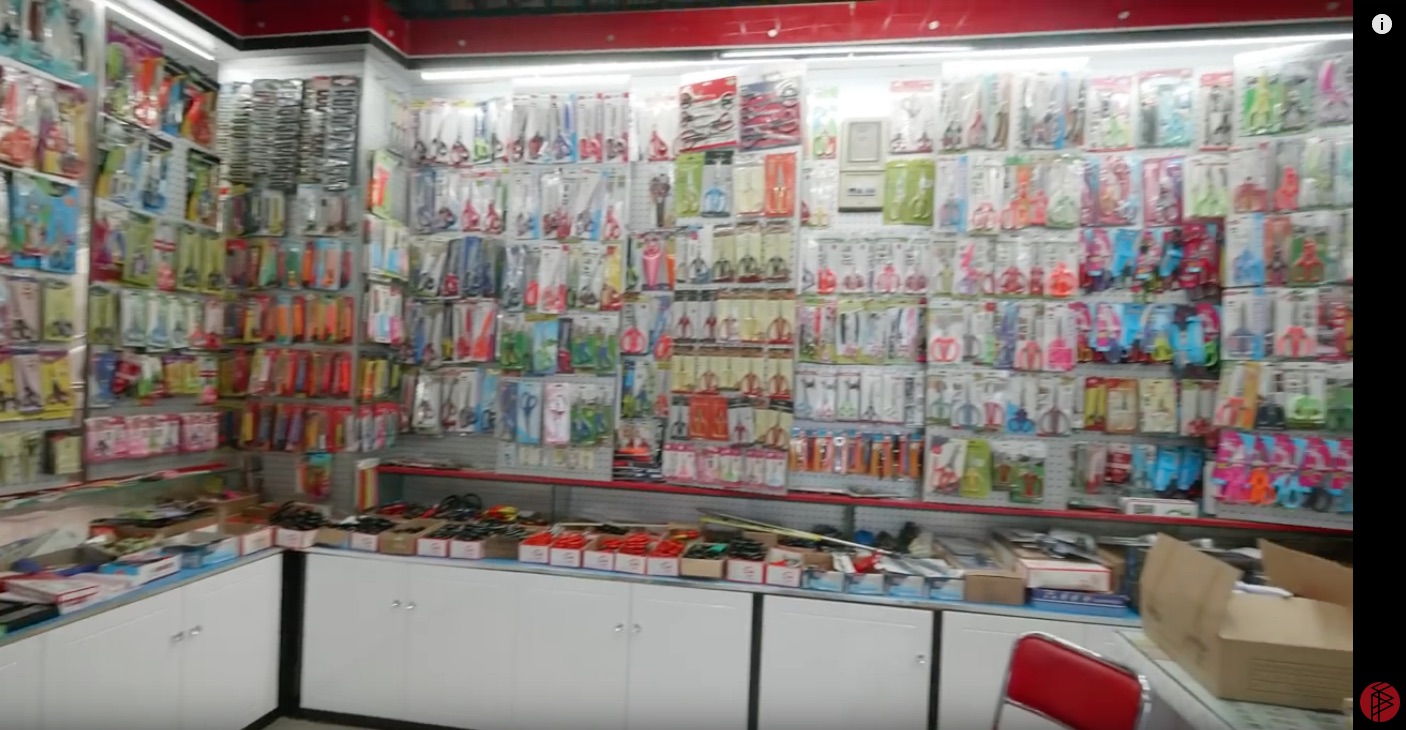
You'll have a shop showing just scissors, for example, with hundreds of varieties of scissors. For each scissor type, the shop will have exactly one instance - again it's not about selling to customers, but selling to product distributors who are buying at wholesale prices in large quantities.
Source: Scotty of Strange Parts
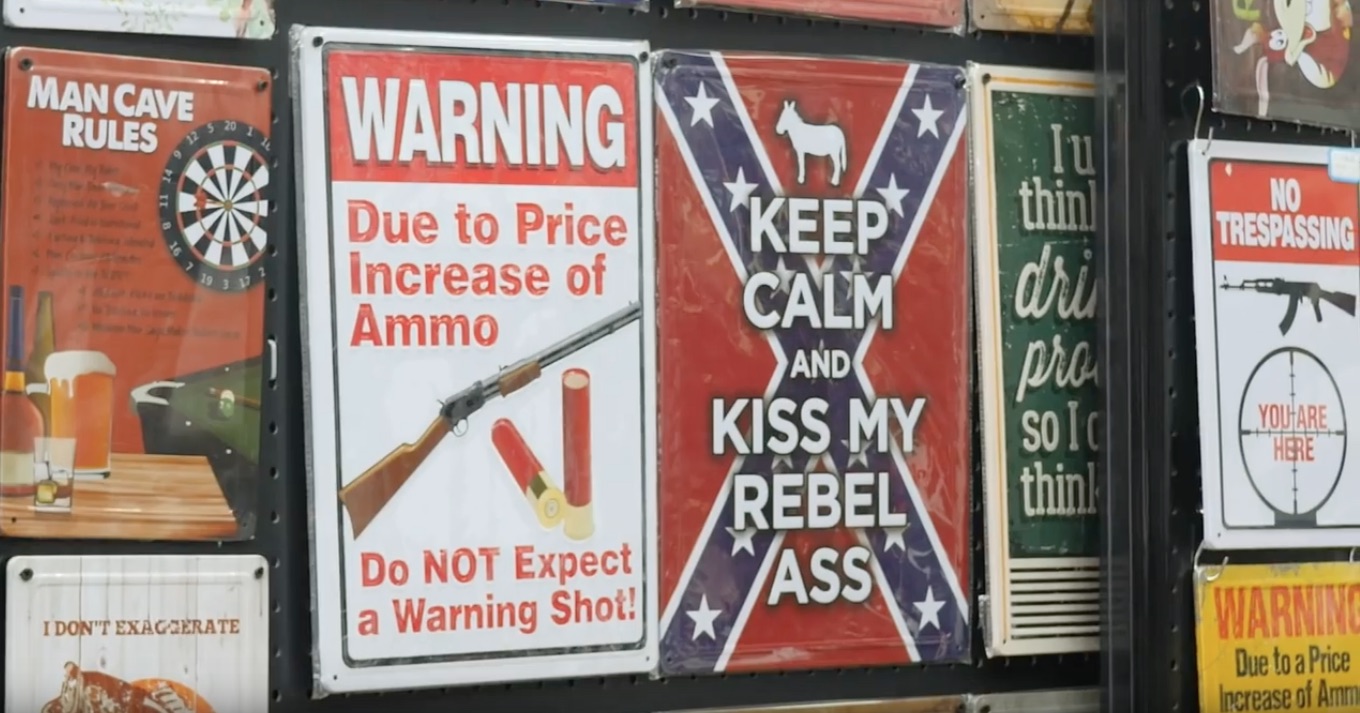
One shop in the video stocks fake Civil War memorabilia, and products combining the "Confederate Battle Flag" with a Defiant Saying. There's obviously a sub-culture in the USA and elsewhere that for some unknown reason loves the Confederate cause, and loves to have anything with a Confederate flag.
But, by the values they espouse would they want to buy products made in China? Wouldn't their values be to Buy American? And what does it mean when their faux-Confederate gear is made in China?
Source: Scotty of Strange Parts
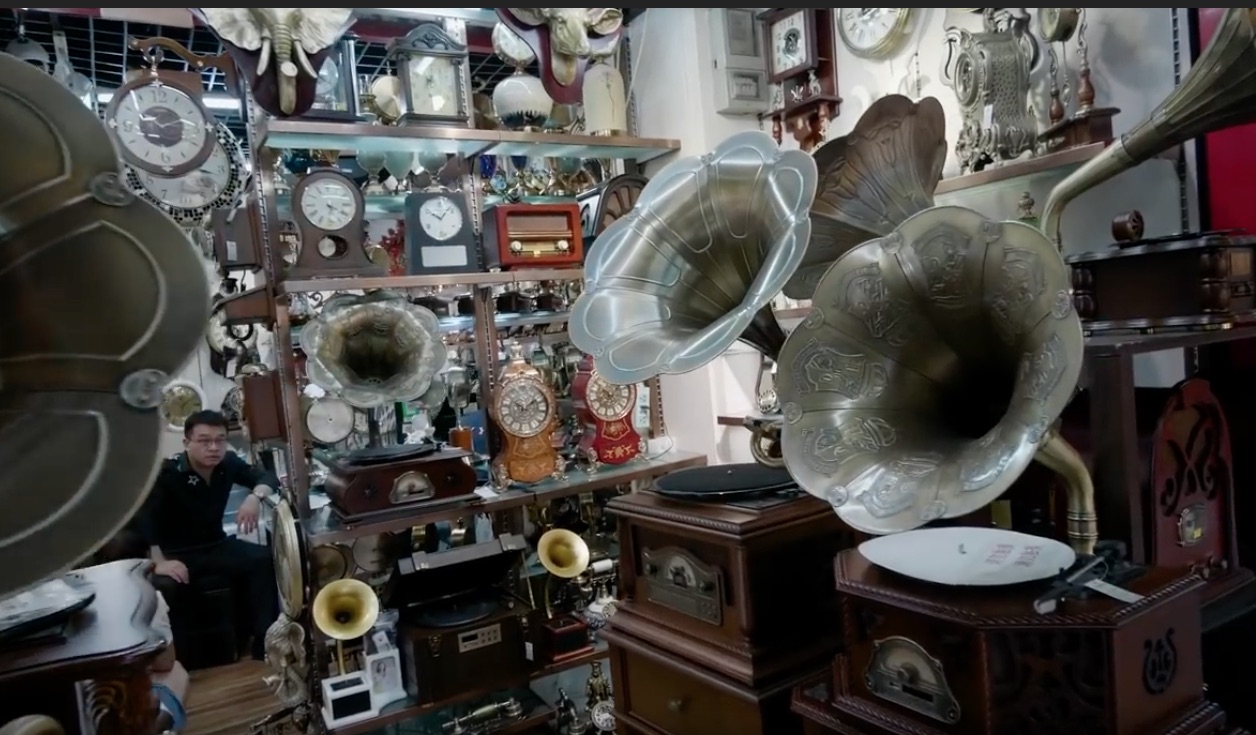
This came from an area which Scotty described as containing "Decoration, Arts and Crafts" which he said mostly contained Americana like in this image. You might expect stuff like this in a fancy shop portending to be an Antique shop, but the products come from China.
Source: Scotty of Strange Parts
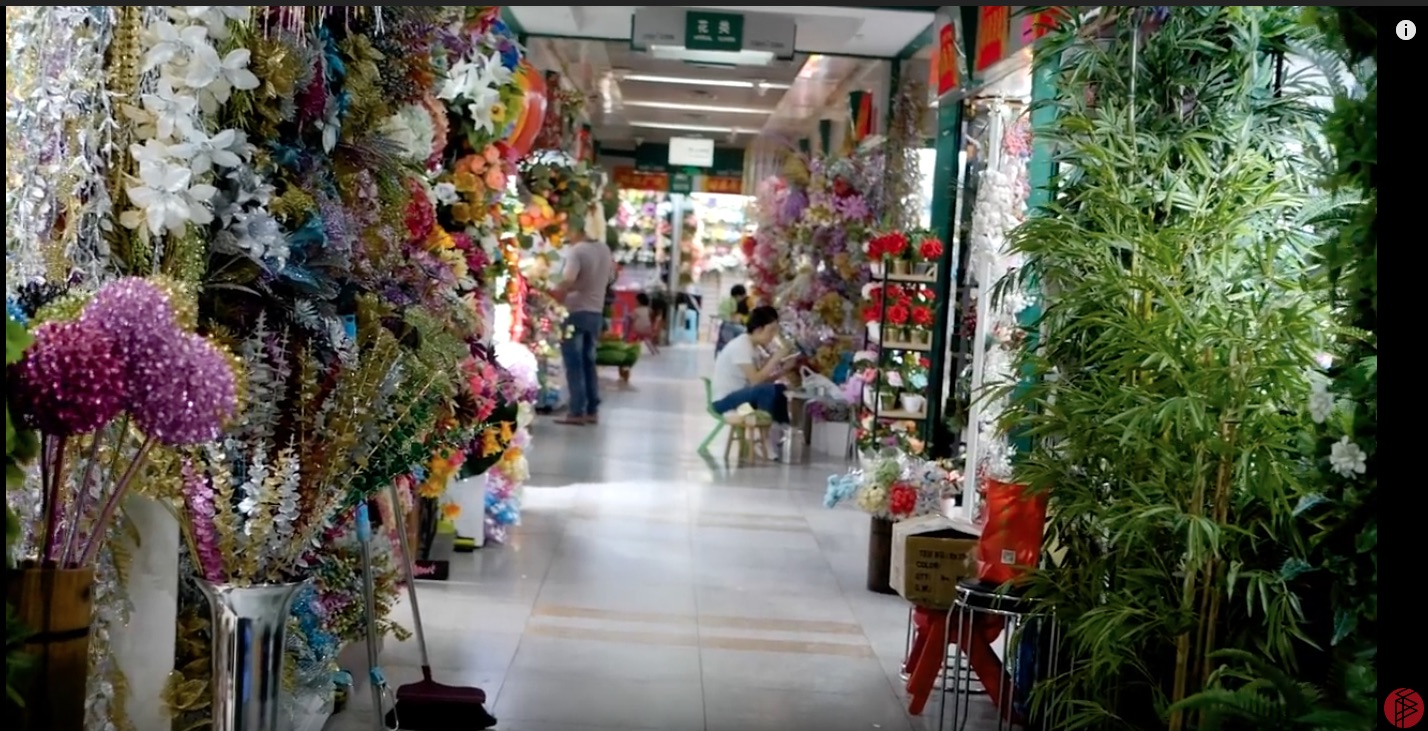
The floral section is full of manufacturers of fake plastic flowers.
Source: Scotty of Strange Parts
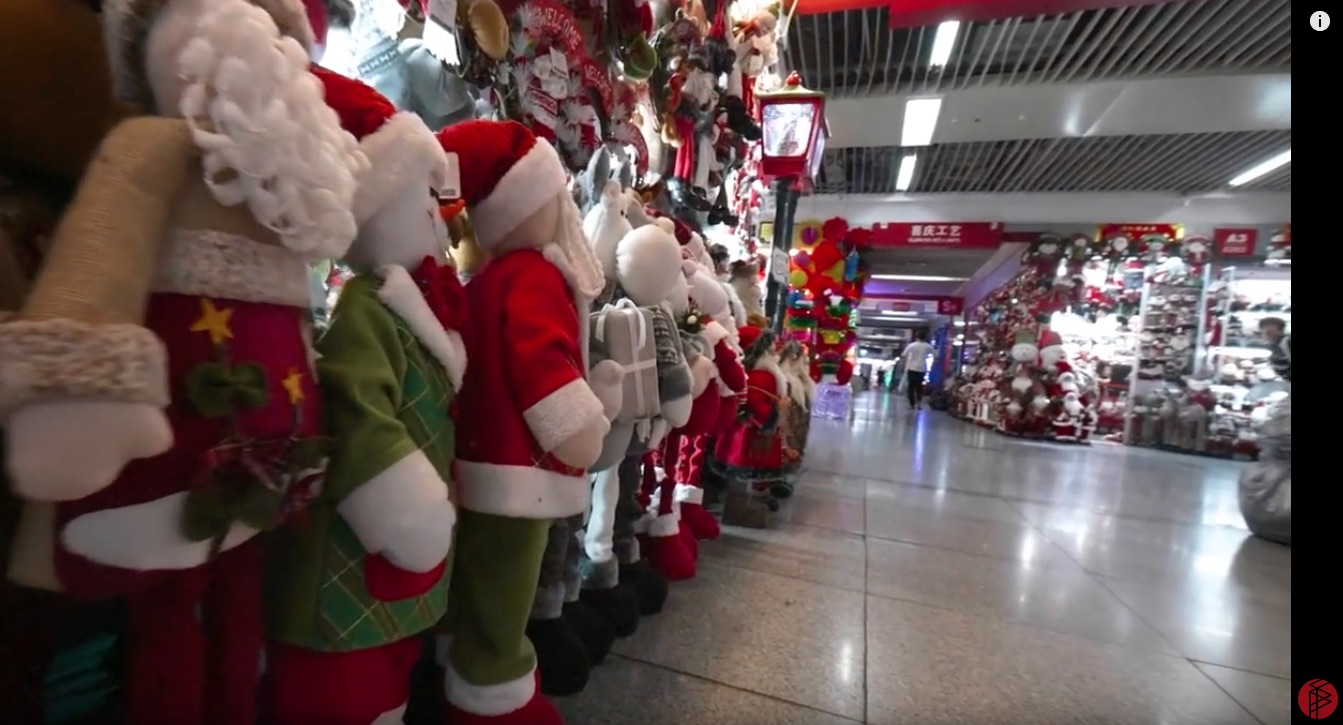
The Christmas section is Santa Claus as far as they eye can see, all kinds of fake Christmas trees, and Tinsel behind every corner.
Source: Scotty of Strange Parts



